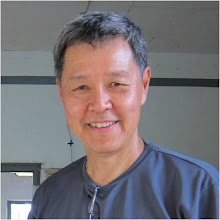This is actually a very interesting story about an drug SAE (serious adverse event) associated with a specific HLA genotype. Not only genetics, but also an intriguing tale about ethnicity and populations.
So far all the clinical data verify the association in Han Chinese (Taiwan, Hong Kong) and Thai. No associations have been found for Europeans....and here is what is also interesting...not for Japanese as well. Ferrel and McLeod (2008) have reviewed the data, and there have also been a number of more recent studies reporting on the HLA-B*1502 allele frequencies from different populations.
 A Table of these frequencies from Ferrel and McLeod is reproduced here.
A Table of these frequencies from Ferrel and McLeod is reproduced here.There are a couple of more recent data not only showing the same patterns but also showing how the Northern Chinese group pulls apart from the Southern Chinese. Han Chinese from Shaanxi, Koreans and Japanese have a Caucasian type frequency while Southern Chinese in Guangdong cluster with the rest of South East Asia (Philippines, Java). The Indian subcontinent occupies an intermediate position, and depending on the population sampled, with frequencies ranging between Caucasian frequencies to those similar to South East Asians and Southern Chinese. The association between HLA-B*1502 and carbamazepine SJS appears not in doubt, but apparently only for Southern Chinese (Taiwan, Hong Kong, most of Singapore) and people of South East Asian ancestry. It does not seem to apply for Caucasians, and remains doubtful for Northern Chinese, and people of a more northern ancestry such as the Japanese (and possibly the Koreans). There remains a big question mark for people from the Indian subcontinent.
The FDA did us a major injustice when in their haste they recommended that genotyping for HLA-B*1502 be done prior to dosing, for people of an "Asian ancestry". We have no idea what this means. For Singapore, it is probably reasonable for Chinese and Malays (although it may not apply to the more northern Chinese among us), but we are totally in the dark with regards to "Indians" and "Eurasians".








No comments:
Post a Comment